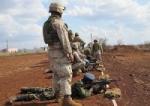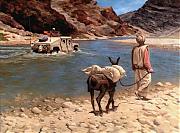In a number of Shiite neighborhoods across Baghdad, residents are beginning to turn away from the Mahdi Army, the Shiite militia they once saw as their only protector against Sunni militants. Now they resent it as a band of street thugs without ideology.
The hardening Shiite feeling in Baghdad opens an opportunity for the American military, which has long struggled against the Mahdi Army, as American commanders rely increasingly on tribes and local leaders in their prosecution of the war.
The sectarian landscape has shifted, with Sunni extremists largely defeated in many Shiite neighborhoods, and the war in those places has sunk into a criminality that is often blind to sect.
....
Among the people killed in the neighborhood of Topchi over the past two months, residents said, were the owner of an electrical shop, a sweets seller, a rich man, three women, two local council members, and two children, ages 9 and 11.
It was a disparate group with one thing in common: All were Shiites killed by Shiites. Residents blamed the Mahdi Army, which controls the neighborhood.
"Everyone knew who the killers were," said a mother from Topchi, whose neighbor, a Shiite woman, was one of the victims. "I'm Shiite, and I pray to God that he will punish them."
The feeling was the same in other neighborhoods.
"We thought they were soldiers defending the Shiites," said Sayeed Sabah, a Shiite who runs a charity in the western neighborhood of Huriya. "But now we see they are youngster-killers, no more than that. People want to get rid of them."
While the Mahdi militia still controls most Shiite neighborhoods, early evidence that Shiites are starting to oppose some parts of the militia is surfacing on American bases. Shiite sheiks, the militia's traditional base, are beginning to contact Americans, much as Sunni tribes reached out early this year, refocusing one entire front of the war, officials said, and the number of accurate tips flowing into American bases has soared.
Shiites are "participating like they never have before," said Major Mark Brady, of the Multi-National Division-Baghdad Reconciliation and Engagement Cell, which works with tribes.











 "Its easy, boys. All we have to do is follow my simple yet ingenius plan..."
"Its easy, boys. All we have to do is follow my simple yet ingenius plan..."
Bookmarks